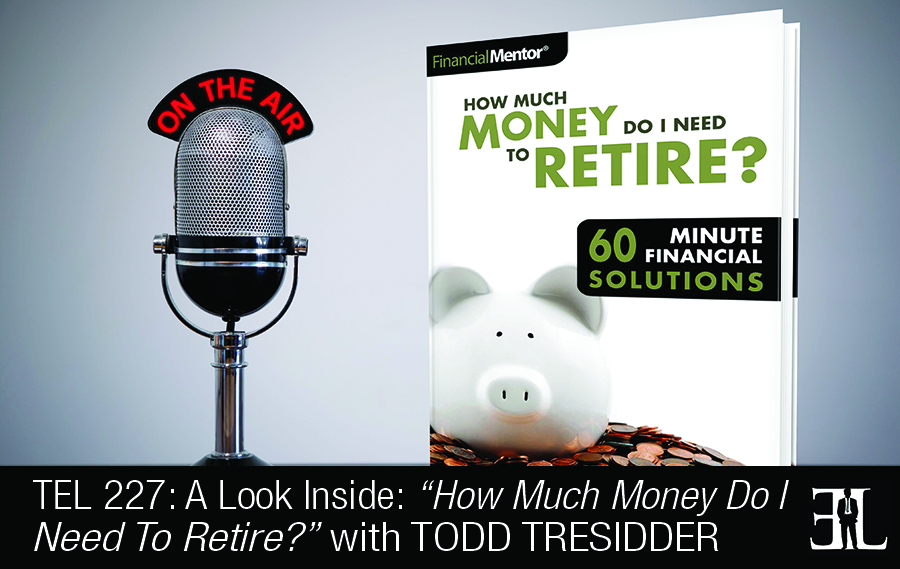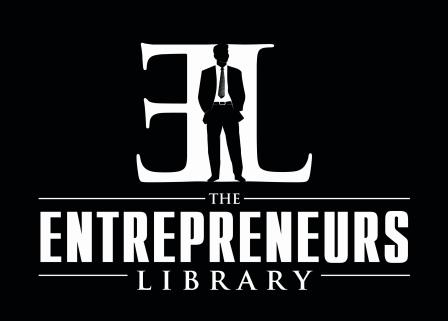A Preview of How Much Money Do I Need To Retire with Todd Tresidder

A summary of things you should know about How Much Money Do I Need To Retire? according to Todd Tresidder:
Introduction
In this episode personal finance expert, Todd Tresidder takes a deep dive into his book, How Much Money Do I Need To Retire?, where he shows you how to start your retirement savings.
In his book Tresidder argues that the conventional approach to retirement planning is flawed and reveals a much more stable formula for calculating the amount you need to save for retirement. The goal of the book is to teach you ways to spend less while improving your life, how to reduce the amount you need to retire, 3 models for estimating your retirement needs, and how to not run out of money.
This book is perfect for entrepreneurs who are within 5 – 7 years of retiring and need help figuring out exactly what it will take to ensure they are financially safe for retirement.
The Book’s Unique Quality (4:22)
Most books about this topic come at it from an assets approach. Although I think that’s important, that’s only a small portion of what’s to be learned.
The Best Way To Engage (5:26)
It’s designed to be read from front to back because I start with the traditional model and then I explain alternative models.
The Reader’s Takeaway (10:33)
I want the reader to understand that there is no magic number. You need to recognize that everything is an estimate and your retirement planning is an iterative process, it’s worth doing to get a generalized goal but understand that it’s a range of outcomes. There is no definitive number and you will work with your retirement number throughout your retirement as numbers come in.
A Deep Dive Into The Book (6:28)
The whole first half of the book is all about the traditional model but I take it a whole cut deeper. So you start with the traditional approach which is using the retirement calculator, you plug in all these assumptions, but then I take you through the assumptions one by one and explain why they can’t be made properly. For example one of the assumptions is life expectancy, nobody knows when they are going to die that’s an impossible assumption to make. Or an investment return, nobody has any idea what their investment return will be over the next 30 years, it’s a guess at best. So I go through these assumptions one by one and I help you create a range of viable values and help you to understand how to work with that assumption in a constructive way.
From there we build a confidence interval using a traditional approach called The Assets Base approach.
Then the book goes through what I call Lifestyle Planning for Retirement and this is where you can start having breakthrough results. And the whole premise here is that for every one thousand dollars per month you spend in retirement, it requires anywhere from three hundred to four hundred thousand dollars in assets to support it. You will find that there are a lot of different ways in which you can redesign your life so it can be every bit as fulfilling or more fulfilling at a fraction of the cost. This is what I call Lifestyle Planning around retirement and it’s a great way to make ends meet if they don’t already.
In the third part of the book we discuss what I call Cash Flow Base Retirement Planning. In this second I point out that really retirement or financial independence at any age is about cash flow exceeding expenses. So then we go into cash flow base models and it’s a complete turnaround in the approach to retirement planning.
NOTE: That was just a summary. To get the full deep dive, play the audio clip at 06:28
Notable Quotes From The Book (12:56)
“The only function of economic forecasting is to make astrology look respectable.” – John Kenneth Galbraith
The Credibility/Inspiration Of The Author (0:32)
I have a background in hedge fund investing. I came out of college and I had a crazy idea that I could make money from investing statistically or mathematically without actually knowing the investments themselves. My two icon investors were my professor and father and they both told me it wouldn’t work but despite their opinion I was sure it would and I was right. I was one of the early pioneers of the hedge fund business and so I was able to “retire” at age 35. After retirement I decided to take the knowledge that I had and share it with others. This led me to build a company called Financial Mentor which is an advanced education website that is geared around wealth building. This website is focused on people who are past the basics and ready for the next step.
The inspiration was my coaching clients. Since I was coaching people on how to build wealth the number one question was how much money do I need and so I wrote the book on this subject because nobody else had done a proper job at it.
Other Books Recommended By The Author (15:07)
The War of Art by Steven Pressfield
More Information About This Book and The Author
Buy How Much Money Do I Need to Retire by Todd Tresidder on Amazon today
Visit FinancialMentor.com to learn more about Todd and his work
Follow Todd Tresidder on Linkedin and Twitter
More Information About This Episode
Download the full transcript here (coming soon)
Listen on iTunes, Stitcher , and SoundCloud
Related books:
You Can Retire Sooner Than You Think by Wes Moss
The 5 Years Before You Retire by Emily Guy Birken
Get What’s Yours by Larry Kotlikoff
What did you like and not like about this episode? Fill out this one minute survey here.
 The Entrepreneurs Library
The Entrepreneurs Library














